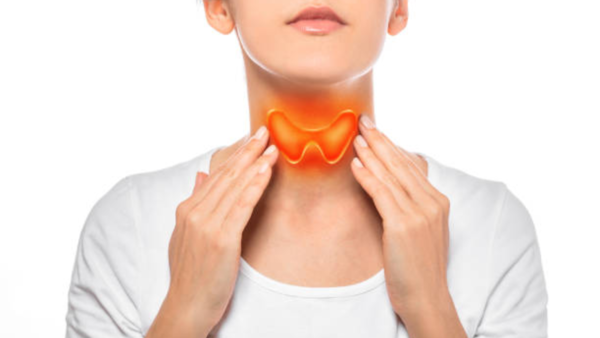
Crossing the 30s is not just about celebrating a milestone; it’s a phase when the body silently starts showing the early signs of wear and tear. Energy may not feel the same, metabolism begins to slow down, and lifestyle stress adds up.
Most people assume they’re still too young to fall sick. But here's the reality—many chronic diseases like diabetes, hypertension, and hormonal imbalances begin taking root around this age. Regular health check-ups become less of a luxury and more of a necessity.As per general understanding, check-ups mostly happen only when there's a visible problem. But prevention is far more powerful than a cure. And for those over 30, knowing which tests to take and how frequently to visit a doctor could make all the difference in staying healthy longer.
“Feeling fine means nothing’s wrong”
It's generally believed that if the body feels fine, it probably is. But many lifestyle-related diseases, like high blood pressure, thyroid imbalance, or fatty liver, have no early symptoms. These silently grow over the years and often show up only when significant damage has been done.A healthy appearance does not guarantee internal wellness. Regular medical check-ups act like a mirror, revealing what’s happening inside.
This helps catch problems early, often when they’re reversible.

Representational.
How often should a doctor be seen after 30?
There’s no one-size-fits-all answer, but general guidance can help. For someone who’s otherwise healthy, seeing a general physician once a year is considered wise. However, for those with risk factors, like obesity, a family history of diabetes, or high stress levels, it might be better to check in every six months.Men and women over 30 are also advised to meet specialists based on specific needs.
For example, women may need to see a gynaecologist annually, while men might need a urologist’s advice in some cases.
Blood pressure and blood sugar: The silent alarms
It’s shocking how many individuals over 30 discover they have high BP or sugar only during a random check-up.Recommended tests:
- Blood pressure check: At least once every 6–12 months.
- Fasting and postprandial blood sugar: Once a year, or more frequently if family history exists.
Why this matters: Hypertension and diabetes mostly remain unnoticed till they affect the kidneys, eyes, or heart. Early monitoring helps prevent complications later.

Cholesterol is a fatty substance your body actually needs. It helps make hormones, build cells, and digest food. Your liver makes most of it, and the rest comes from animal-based foods like meat, eggs, and cheese.But cholesterol doesn’t float freely in your blood—it hitches a ride on lipoproteins, like tiny taxis carrying passengers. And that’s where our three main characters enter the chat: LDL, HDL, and triglycerides.
Lipid profile: Watching the cholesterol
Fatty food habits, desk jobs, and less movement make high cholesterol common in Indian adults after 30.Essential test: Lipid profile test to check LDL (bad cholesterol), HDL (good cholesterol), and triglycerides. Ideally done annually.Even vegetarians and slim people can have bad cholesterol ratios due to poor cooking oils or a lack of exercise. Regular testing helps understand the body’s unique cholesterol behaviour.
Liver and kidney function tests
Our belief in self-medication and painkillers is common. Add to it alcohol, fatty foods, and stress, and liver and kidney health can quietly decline.Must-do tests:
- Liver Function Test (LFT)
- Kidney Function Test (KFT)
Both should be part of an annual health check-up, especially for those with sedentary lifestyles or who consume processed food frequently.

Thyroid levels: More than just a women's issue
While thyroid issues are associated with women, men are not immune. Fatigue, weight changes, mood swings, and hair loss can be early signs.Recommended test: TSH, T3, and T4 levels every 12 months or sooner if symptoms appear.In urban India, rising stress levels and food adulteration are contributing to more thyroid imbalances across both genders.
Vitamin D and B12: Modern age deficiencies
Even with sunny skies, Vitamin D deficiency is widespread in India, especially among those working indoors.
B12 deficiency is common due to poor gut health and vegetarian diets.Advised tests:
- Vitamin D (25-hydroxy)
- Vitamin B12 levels
These can be checked once a year, and supplements can be taken based on need. Chronic fatigue, brain fog, or muscle pain are often linked to these deficiencies but get misdiagnosed.
Women's Day 2024: Important health tests women should do regularly
Cancer screenings: Early detection is everything
After 30, it’s wise to start early screenings, especially if there’s a family history.For women:
- Pap smear (for cervical cancer): every 3 years after 30
- Breast exam (clinical or mammogram based on risk factors)
For men:
- Testicular exam: yearly clinical check-up
- Prostate screening can begin in the late 30s if there's a family history
Most households shy away from these tests due to stigma or fear. But these are life-saving tools when done on time.

 6 hours ago
52
6 hours ago
52




























 English (US)
English (US)